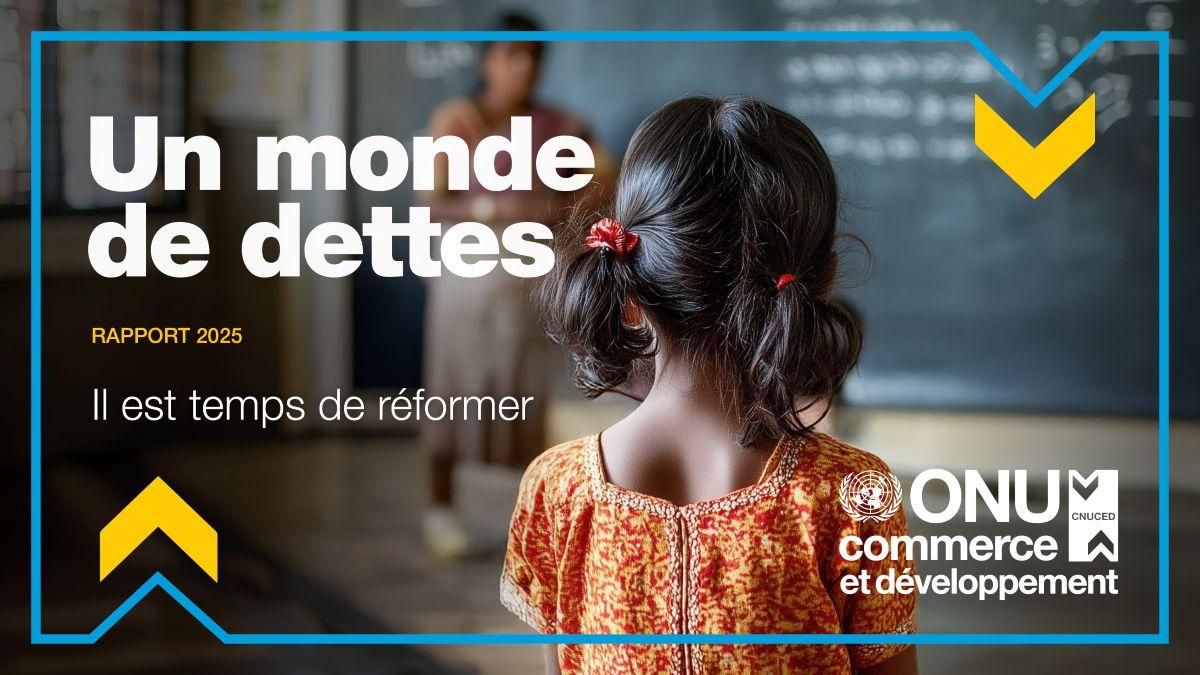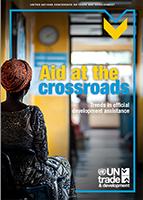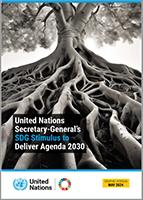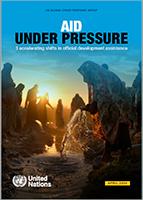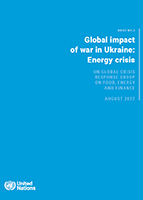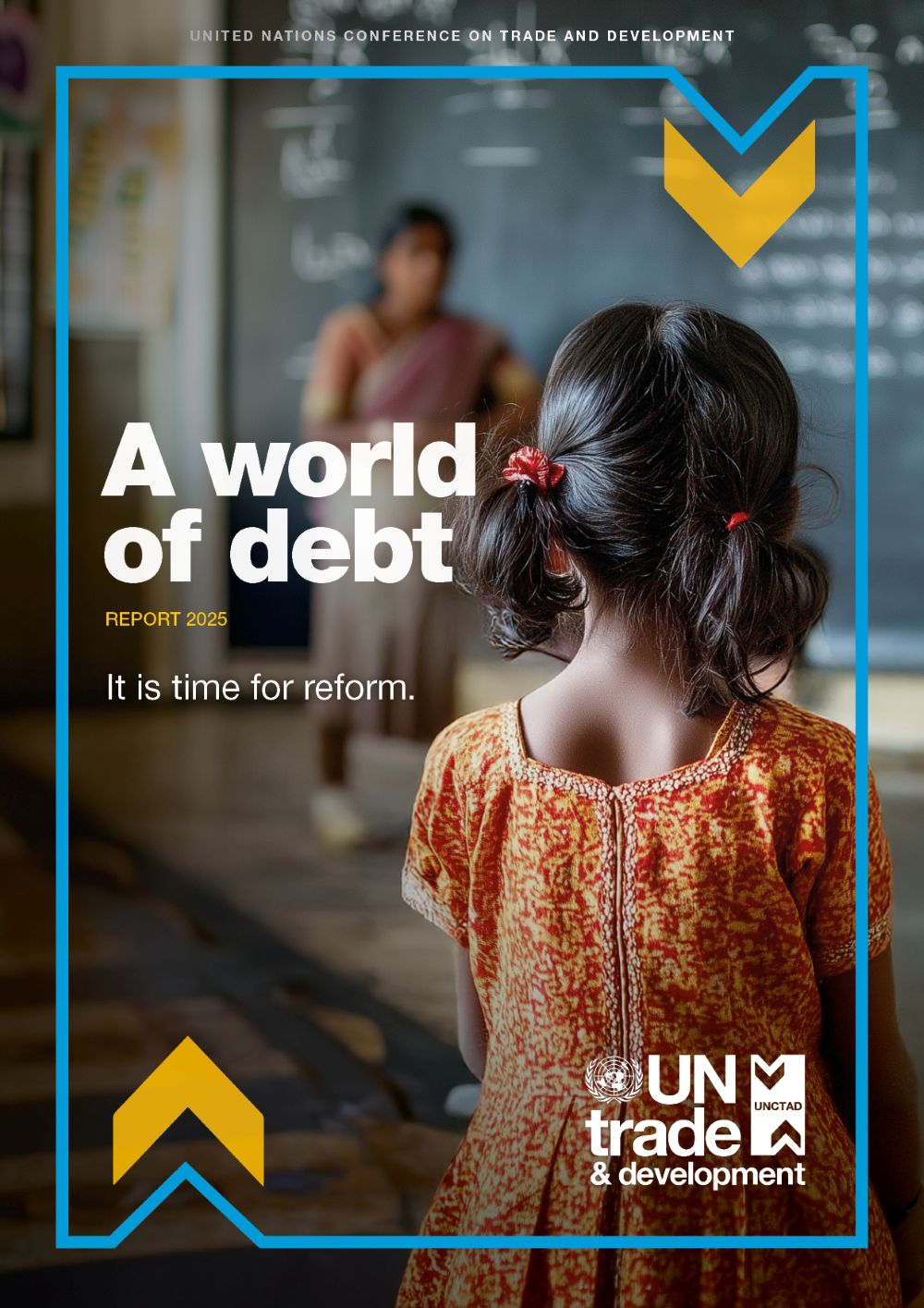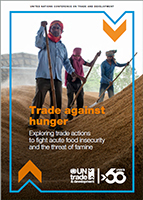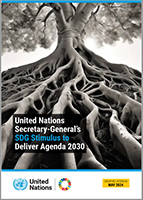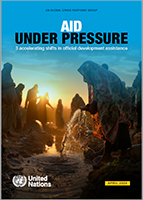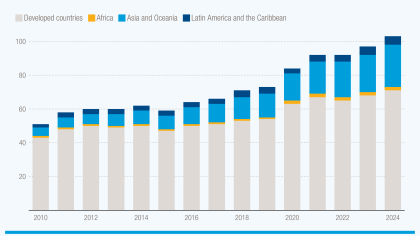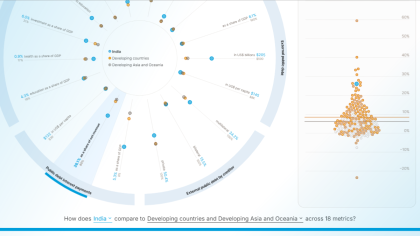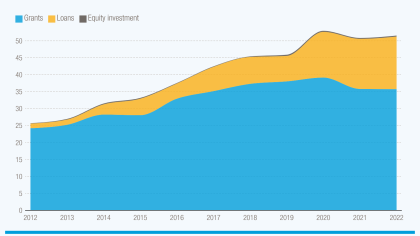In March 2022, UN Secretary-General António Guterres established the UN Global Crisis Response Group on Food, Energy and Finance (GCRG) to respond to the unprecedented interconnected food, energy and finance crises in the world.
Inflation, food insecurity, soaring energy and food prices, supply chain disruptions and mounting debt are among the pressing challenges added to a world recovering from the human and economic losses of the COVID-19 pandemic and facing the ongoing threat of climate change and the war in Ukraine.
These challenges are particularly acute in developing economies.
Reports
Reports
A three-dimensional crisis
Countries and people with limited capacity to cope are the most affected by the ongoing cost-of-living crisis. Three main transmission channels generate these effects: rising food prices, rising energy prices, and tightening financial conditions. Each of these elements can have important effects on its own, but they can also feed into each other creating vicious cycles.
We urge all countries to keep markets open, resist unjustified and unnecessary export restrictions, and make reserves available to countries at risk of hunger and famine.
The use of strategic stockpiles and additional reserves could help to ease the energy crisis in the short term. But the only medium- and long-term solution is to accelerate the deployment of renewable energy.
We need urgent action by the G20 and international financial institutions to increase liquidity and fiscal space so that governments can provide safety nets for the poorest and most vulnerable.
Related agreements on food and fertilizers
The GCRG’s work on the food aspect of the global crisis helped lead to the signing of two agreements to address growing global food insecurity around the world.
The Black Sea Initiative
On 22 July, the United Nations, the Russian Federation, Türkiye and Ukraine agreed the Black Sea Initiative, at a signing ceremony in Istanbul.
The initiative was set up to reintroduce vital food and fertilizer exports from Ukraine to the rest of the world. A Joint Coordination Centre was established to monitor implementation.
Memorandum of Understanding
This Memorandum of Understanding (MoU) was signed between the United Nations and the Russian Federation in Istanbul on 22 July 2022, at the same time as the Black Sea Grain Initiative.
Together they pave the way for food and fertilizer to reach global markets, which will help to stabilize spiralling food prices worldwide and stave off famine, affecting millions.



